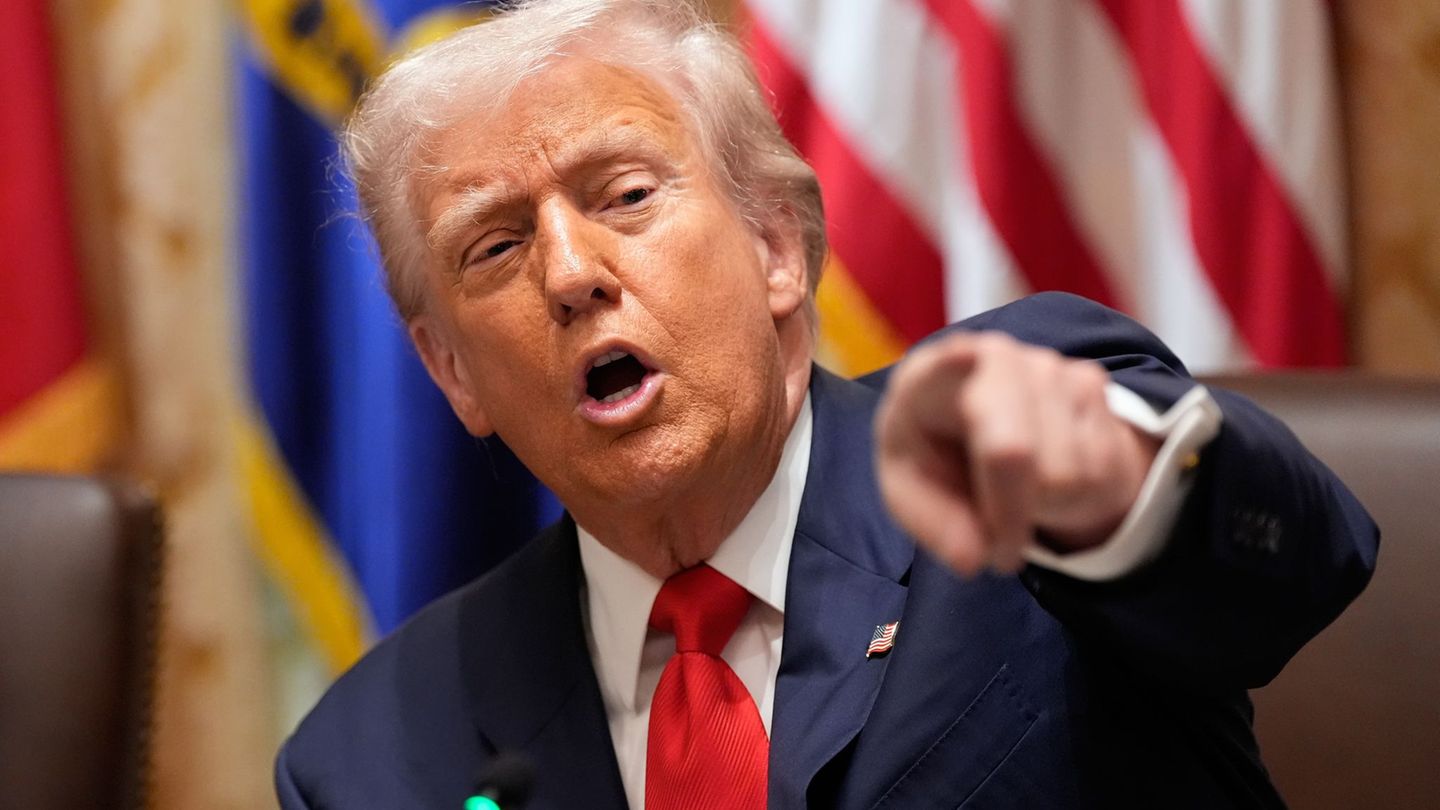Bundesbank President Nagel is campaigning for Germany not to be viewed as the “sick man of Europe” despite its economic problems. But the forecasts and statistics paint a tense picture.
The German economy is still not gaining momentum – but Bundesbank President Joachim Nagel sees no reason to paint it pessimistic. However, current figures and surveys do not yet point to a trend reversal. Both the Kiel Institute for the World Economy (IfW) and the Leibniz Institute for Economic Research Halle (IWH) corrected their economic forecasts for Germany downwards on Wednesday and now expect a decline in economic output of 0.5 percent (summer forecast: -0.3 percent ).
The main reasons given by the people of Kiel on Wednesday were weak industrial activity, the crisis in the construction industry and falling consumer spending. Incoming orders in industry have also recently been pointing downwards. According to the Federal Statistical Office, they fell by 11.7 percent in July compared to the previous month – which was primarily the result of a “very extensive major order” in June. In a three-month comparison, incoming orders from May to July were 3.1 percent higher than in the three months before.
The IWH sees the reasons for the weakening economic development in lower private consumption, the slump in housing construction and faltering foreign trade.
Don’t downplay “Made in Germany”.
In the winter half-year, the German economy shrank for two quarters in a row and thus slipped into a so-called technical recession. In the second quarter of 2023, the gross domestic product (GDP) in Europe’s largest economy stagnated compared to the previous quarter. High inflation, faltering consumption and a weakening global economy are causing problems for Germany as an export nation.
Bundesbank President Nagel called for prudence despite the critical situation. “Germany is not the sick man of Europe. I think that’s a misdiagnosis that catches many people all too easily. We should be more self-confident,” Nagel told the “Handelsblatt”. Compared to other countries, Germany is in a good position overall, not just in terms of employment and debt sustainability: “We shouldn’t let “Made in Germany” be played down. The German economic model is not obsolete. But it needs an update.” Nagel mentioned the energy transition, digitization and the need to make international trade relations more resilient as keywords.
Reducing bureaucracy is becoming increasingly important
Clear criticism comes from the foreign trade association BGA. According to association president Dirk Jandura, Germany is currently not competitive enough in many areas. “And neither is our policy.” Jandura accused the federal government of not doing enough to reduce bureaucracy. In addition, German and European politicians are in the process of being cautious about new free trade agreements, endangering Europe’s competitiveness. “Canada, Kenya, maybe New Zealand and Chile. That’s not enough in the age of change,” said Jandura.
For the further course of the year, the BGA assumes that German foreign trade will “at best” stagnate in volume. In the third and fourth quarters, however, things could also get significantly worse. According to an association survey, more than 60 percent of companies expect foreign trade to decline (57 percent) or sharply (6). “Only every twentieth company is assuming better development,” said Jandura.
“Germany is now feeling that its old industrial business model is no longer working,” said IfW President Moritz Schularick. In addition, the turnaround in interest rates is weighing on the domestic economy and on the export markets. “The central banks have successfully shown their teeth in the fight against inflation, and the German economy must now assert itself in this new environment.”
Inflation should decrease significantly
The Kiel economists assume that the German economy will not pick up speed again until the turn of the year. For 2024, however, the IfW now only expects an increase in gross domestic product of 1.3 percent (previously 1.8 percent). Economists expect inflation to fall significantly in the coming year and amount to 2.1 percent in 2024 and 2025.
According to the OECD, the industrialized countries’ organization, the economy in Europe will also pick up speed again in the coming year and inflation will fall. The EU and the euro area could have averted a severe downturn following the Russian war of aggression in Ukraine and the energy crisis. Growth and falling inflation are in sight. However, according to the latest OECD economic report, the short-term prospects remain characterized by uncertainty.
Source: Stern




